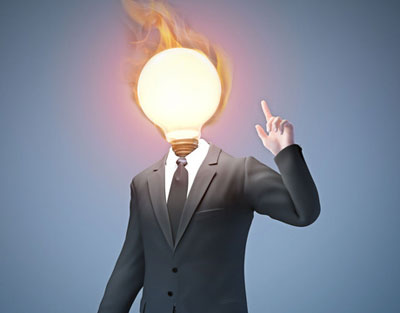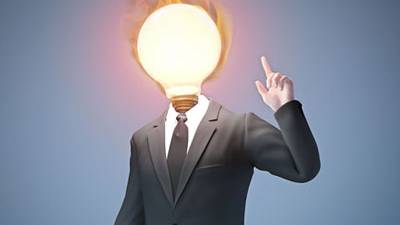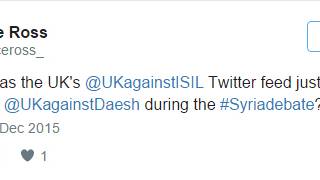How to Avoid the Natural Reactions that Prevent Good Decision Making
Source: lifehacker.com

Most of us like to think that we are in control of our actions. Turns out, your brain can be a big jerk, and you are susceptible to a large list of biases and reactions that can hold you back from acting objectively. Luckily, some good social psychology books (spurred on by well-research papers and experiments!) have revealed a large amount of these biases to the common reader.
Here are five notorious social biases and the ways that you can recognize them and react.
Fundamental Attribution Error
This is a very insidious bias that we all fall victim to from time-to-time.
The calling card of the fundamental attribution error is when we place a large amount of emphasis on situational explanations when rationalizing when things happen to us, but we use personality-based explanations when rationalizing what happens to others.
As an example:
If Alice saw Bob trip over a rock and fall, Alice might consider Bob to be clumsy or careless (personal/dispositional).
If Alice tripped over the same rock herself, she would be more likely to blame the placement of the rock (situational).
First uncovered by the classic study The attribution of attitudes, there are STILL no concrete explanations to explain it’s occurrence.
Some of the more common reasons cited include:
- The just-world phenomenon: our brains are naturally inclined to have a belief that the world is balanced or "fair", and that things that happen to others happen for a reason. While we often see other people this way, we have a tendency to see ourselves as "victims" instead.
- Salience of the actor: individuals capture our attention, so when observing their situation, we are focused on them, when observing our own situation, we focus on the environment.
- Automaticity & processing: we often process things on a subconscious level, and it’s often easier for our brain to wave away a situation as happening "just because they deserve it" rather than looking at the circumstances.
Dealing with it: Unfortunately, there isn’t much beyond an agreed list of "best practices" when it comes to dealing with the fundamental attribution error (it’s that pervasive!). The best I’ve got for you is to remind yourself of the old adage of, "Walking a mile in someone’s shoes," and determining if the situation is playing a major role in the event.
For instance, if a beginner makes a mistake, recall a time when you were a beginner yourself at the same activity or another; it’s likely that your nervousness, inexperience, and other outside factors caused you to make some errors as well.
Halo Effect
The Halo effect is an attributional bias where our brain makes judgements about the character or competency of others based off of our general impression of them. In some cases, it can be viewed as a form of social proof.
The problem occurs when these impressions are wrong, and since they are often based off of superficial judgements (such as if the person is attractive to us), we can be wrong quite often.
What is also worrisome is that this bias seems to be present even at the highest levels of society in realms where objectivity should rule. In fact, it’s been shown that on average, attractive people serve shorter prison sentences than others who were convicted of similar crimes.
Dealing with it: The most important way to battle against this bias is to try and detach yourself from the person at hand and to take the actions in as much of a "vacuum" as you are able.
If the same action were committed by someone whom you didn’t admire, would it impact you the same way? We have a tendency to get swept up in the stories of others, so ask yourself if the "mystique" about someone was gone, would you perceive their actions differently?
It’s important to ask yourself these questions when trying to objectively evaluate the actions of someone who may have left a strong impression on you or is someone who you truly respect: those qualities don’t always lead to the person being right.
Naive Cynicism
The "naive cynicism" bias occurs quite often, even in the most trusting of people.
It states that people are, on average, likely to assume that others have more of an egocentric bias than themselves. This means that people believe that others are more likely to be egocentric than themselves when dealing with people.
We have data to show that this is not the case (statistically speaking), such as how Malcom Gladwell’s Blink showed that most people do not sue their doctors when injured due to negligence, despite the often pervasive idea that patients are always taking advantage of malpractice in this manner.
In one series of experiments, groups including married couples, video game players, darts players and debaters were asked how often they were responsible for good or bad events relative to a partner.
Participants evenly apportioned themselves for both good and bad events, but expected their partner to claim more responsibility for good events than bad events than they actually did.
Dealing with it: The important thing to remember about this bias is that it’s more of an outlook on others. While circumstance often plays a huge role in people’s outlook on the world (those born in a crowded, crime-ridden city may have different views on other people than those who grew up in a quiet suburb), but it’s important to remember that there are a LOT of people in the world and that, on average, most people evaluate situations in the same fashion that you do.
People by and large will give credit where it’s due, and you should try to react to situations where you have some sort of inclination that the opposite will happen, not just assume that everyone is more egocentric than yourself.
[...]
Read the full article at: lifehacker.com






















